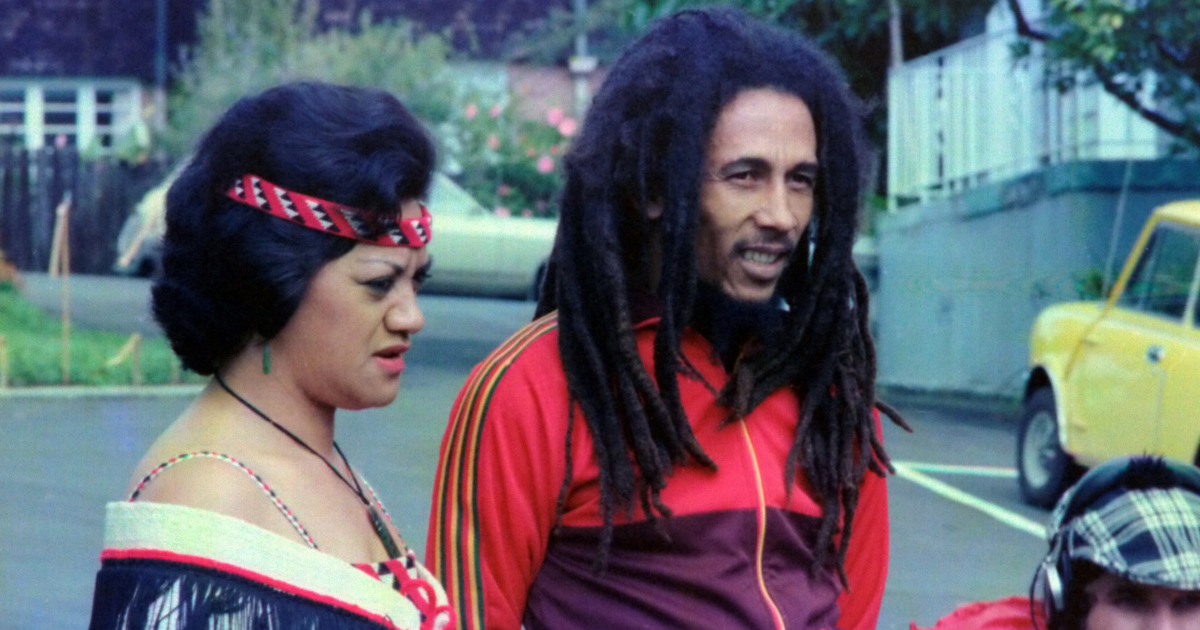Bob Marley: One Love?
"I will never stop believing in people, because that’s all we have left"

Bob Marley. Rejection, alienation, the search for identity, and the simple desire to be himself, a man without labels. It sounds like the opening chord of his life, piercing the soul. His grandmother called him the "German boy." Those words, like distant drumbeats, echoed through his childhood. And yet, it seems this was only the beginning of a song, a melody woven with light and darkness. Like any human being, he was complex. His music, his life, was not just about goodness but also a reflection of the complexities of human nature. Marley was all of us, in all our contradictions.
The first chords
Robert Nesta Marley was born in 1945 in the small Jamaican village of Nine Miles. His life was filled with contradictions from the start – his mother, Cedella Booker, was a Black Jamaican, while his father, Norval Marley, was a white British officer. This unlikely union, formed against societal norms, became both the source of his existence and his deepest internal struggle. Marley’s childhood was marked by a sense of duality – warmth and tradition on one hand, rejection and alienation on the other. A mixed-race child among Black Jamaicans, a poor boy in a world of privilege. These experiences shaped his worldview and forged the resilience that would later define his music.
In the 1950s, his mother moved with him to Kingston, settling in Trench Town, a place where the future either opens doors or dissolves into an illusion. The streets, alive with rhythm and raw energy, became his playground. The sounds of the city inspired him, hardened him, and turned every note of his future songs into echoes of lived experience. For Bob, Trench Town wasn’t just a place, it was the birthplace of reggae.
The Wailers
When Bob met Bunny Wailer and Peter Tosh, they instantly knew they shared more than just a love for music, they had a mission to change the world. Together, they formed The Wailers, transforming reggae from a local rhythm into a universal language. Their early recordings in ska – a genre that would later evolve into reggae – spoke of poverty, injustice, and the struggle for freedom. Their lyrics, simple yet profound, resonated deeply with listeners.
In the 1970s, after signing with Island Records, their music reached new heights. Their album Catch a Fire was a breakthrough, blending reggae with rock to make it accessible to Western audiences. Reggae grew louder, bolder, and more powerful. Tracks like Stir It Up and Concrete Jungle became both a cry of defiance and a beacon of hope. Bob, like a conductor, set the rhythm, bringing together people who might never have met otherwise.
"I don’t just write music, I talk to people," he once said, and it was true. Music was his weapon against injustice and oppression, a force for transformation.
Love as the center of the universe
Rita Marley, his eternal backup vocalist, was more than just his wife, she was his muse, his partner, his anchor in the storm. Their relationship, marked by passion and contradictions, became the foundation for songs like No Woman, No Cry – a song that tells the story of their life in Trench Town, where they shared porridge for two and dreamed of a better future. It became a symbol of resilience and hope, carrying the weight of its plea: "Don’t cry, woman. Everything’s gonna be alright."
But Rita was not the only woman in Bob’s life. He had eleven children with seven different women, each of whom left a mark on his journey. Yet, Rita remained the one who stood beside him, on stage and off. She not only supported him but contributed to his music, singing alongside him in the I-THREE trio, which accompanied Marley in his performances.
Their family was an extension of his music. Ziggy, Stephen, Damian – his sons carried on his legacy, proving that reggae was more than just a genre. It was a culture, a way of life, the voice of a generation.
Music that builds bridges
Bob Marley was more than a musician. He was a bridge builder. In 1978, he organized the One Love Peace Concert, bringing together warring Jamaican politicians and proving that music could transcend even the deepest divisions.
Yet, his life was not without challenges. He survived an assassination attempt, was accused of political manipulation, and faced constant adversity. But he never wavered. "Music is freedom," he declared, and that freedom became his mission. Even his death from cancer in 1981 could not stop his influence. Today, his songs still resonate, uniting people across the world. His music remains his weapon, and his words, his salvation.
The final note
Bob Marley didn’t just leave behind music, he left behind a philosophy where love and unity matter above all else. His songs do more than entertain; they heal, inspire, and bring people together.
Because Bob Marley believed that "One love, one heart" was more than just words – it was the path to peace.


